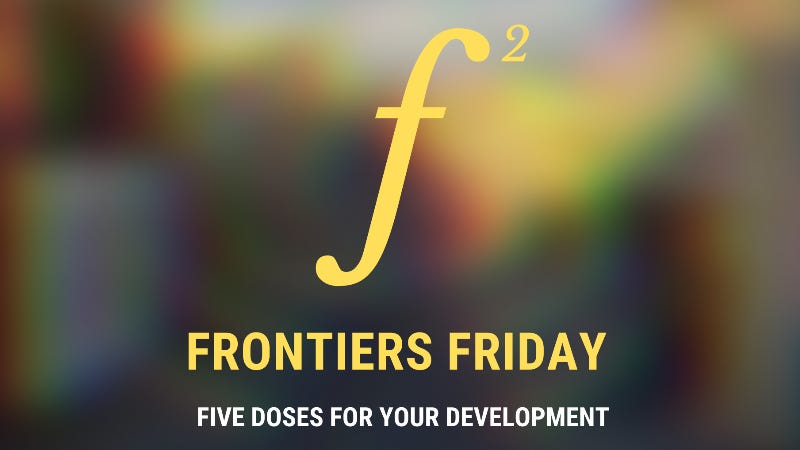Frontiers Friday #54. Empathy (Part III)
Frontiers of Psychotherapist Development
Frontiers Friday #54. Empathy (Part III)
If you haven't gotten an "empathy" overdose, here's part III on this topic.
(In case you missed it, here's the first five recommendations in and . Stay tuned for next week as we look at the flip side of empathy).
From My Desk: To Understand? Easy. To Help Someone Feel Understood? Difficult.
Perhaps that's why skills in clinical case formulation and skills inf helping someone feel understood are mutually exclusive.
Wed-Read: Backlash of R U OK day
The premise of this article is about the potential backfire effect of the R U OK campaign.
Here in Australia, it was R U OK day yesterday. I love the intent behind this, but I'm a little conflicted about its effects. Hearing from youths that I work with, it seemed to have an unintended consequence of backfiring for those who are in distress. As kids being kids, they mock the statement.
An interested tweet in response to 'worst corporate "wellness" horror stories': "About 5 years ago we had to attend a mandatory, all-day wellness session. I was badly burned out and stressed about the work I would now have to take home and stay up til midnight finishing due to the session. The topic? Avoiding burn out and stress, and the importance of sleep."
Web-Read: The Double Empathy Problem: On the Ontological Status of Autism
Often, we conceive the idea that an autistic person is someone with deficits in cognitive empathy. However, this point of view fails to also consider the lack of empathy for people on the spectrum.
Damian E M Milton notes:
"In analysing the interactions that ‘autistic people’ have with the wider population, it is easy to problematise the definition of autism as a ‘social deficit’ located within an individual’s mind. Differences in neurology may well produce differences in sociality, but not a ‘social deficit’ as compared to an idealised normative view of social reality."
(I learned about this study from reading author Katherine May's account of her discovering that she was on the spectrum in her mid-adulthood.)
Research : Effects of biological explanations for mental disorders on clinicians’ empathy
This PNAS study really fascinates me.
The gist: Clinicians with biological explanations (e.g., genetic or neurobiological) significantly reduces clinician's empathy.
The take-home: Our beliefs can spill out into the relational space.
Words Worth Contemplating:
Sometimes it is the people no one can imagine anything of who do the things no one can imagine. —Alan Turing. The Imitation Game
Reflection:
What beliefs do you carry that improve and/or impede your relationship with your clients? And... What beliefs of your clients challenges you?
News Flash:
1. 50th anniversary of the 7th edition of Bergin and Garfield's Handbook of Psychotherapy and Behavior Change releases on 22nd of Sept 2021.
(I know, I'm a geek on these type of things, but I'm super-excited.)
2. Father of cognitive therapy Aaron Beck turned 100 last July!
Dr Beck wrote a letter to our Minister of Health (Australia), recommending more sessions for psychological care.
BIG HUGS TO NEW SUBSCRIBERS WHO WANT TO BE AT THEIR FRONTIER!
If you've just joined us, I'm glad you can join us at the "bleeding edge." Feel free to check out the back catalogue of Frontiers of Psychotherapists Development (FPD).
And if you want to see past newsletters, click here.
In case you missed it, see the most recent missives
(3 Parts)
(3 Parts)
(4 Parts)
Unintended Consequences (2 Parts)
(4 Parts)
(3 Parts)
(5 Parts)
By the way, don't feel bad if you want to unsubscribe to this newsletter. This might not be for you. The last thing I want is to add to the anxious clutter of our inboxes.



